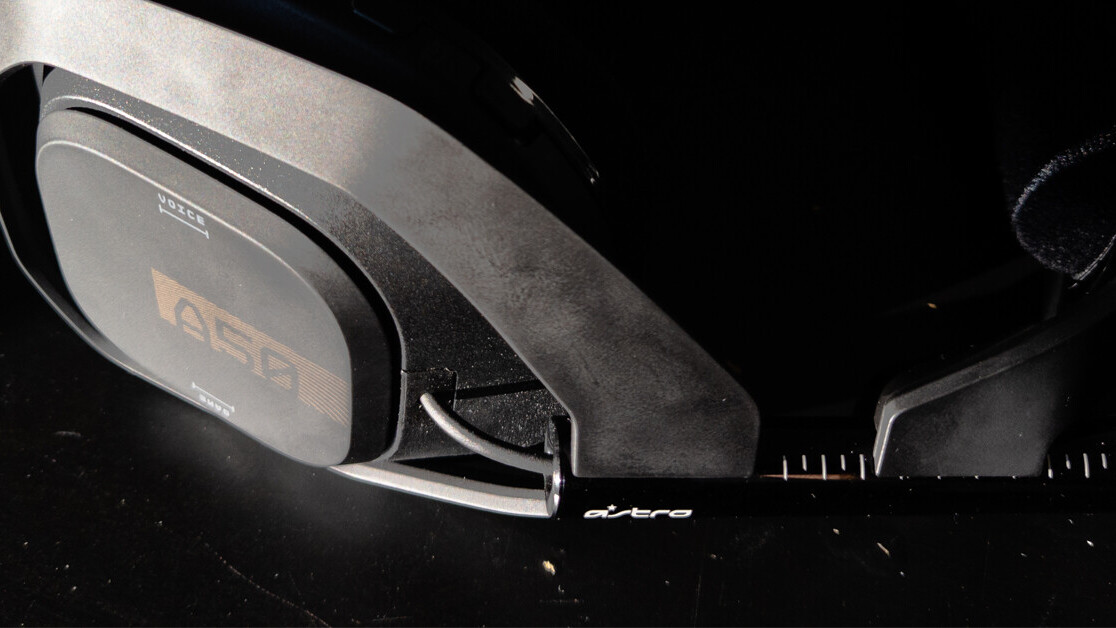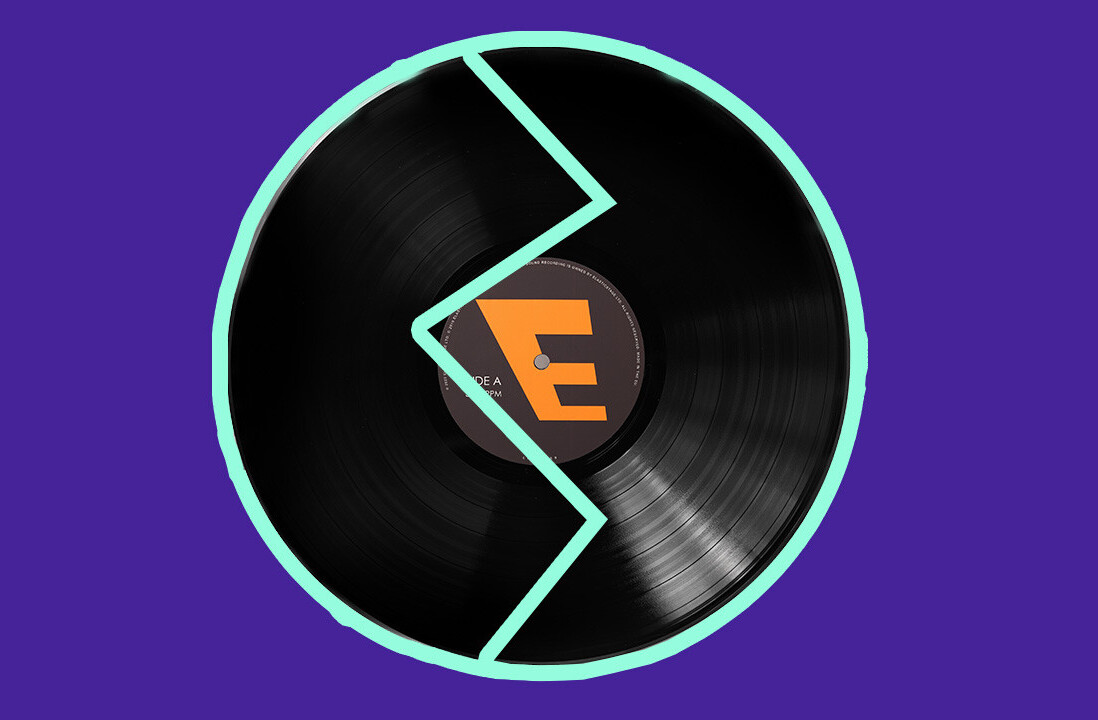
- Product
- A50 wireless gaming headset
- Price
- $299.99
When it comes to gaming, few things infuriate me more than an enemy catching me off-guard. But there’s not much you can do to prevent that from happening if your audio gear sucks — and I’ve had enough. For the past few weeks, I’ve been testing out the fourth iteration of the Astro A50 gaming headset.
Before I get into it, let me preface this review with a disclaimer: I’m hardly an audiophile, and have been using average-sounding cans, earbuds, and speakers pretty much my entire life.
I also used to like how Beats by Dre sounded before the Apple acquisition (which my audiophile colleagues would deem a capital offense). So take that with a pinch of salt.
The good things
Right off the bat, the Astro A50 is incredibly comfortable to wear. Considering they’re a bit on the heavier side (380g), I was pleasantly surprised by that experience. Even after wearing them for hours at a time, I never feel any strain on my head or ears.
If something feels off, you can fine-tune the fit by moving the adjustable rods on each side. Astro has also charted them to make it easier to adjust the length equally on both sides.

The design is also refreshingly clean for a gaming headset, but that’s not to say it compromises on features (more on that further down).
On the left side, there’s a built-in microphone, while on the right side you’ll find dedicated physical buttons for voice and game levels, as well as a physical wheel for the volume. The headband is swappable, and so are the earpads. All you need to do is pull them away from the magnets that keep them in place, and replace them with a new mod kit.

Connecting the A50 to my PC was fairly simple, and you shouldn’t experience any setbacks if you follow the instructions in the box. You’ll have to hook the dock (or Base Station as Astro calls it) to your system, and make the headset your default device (for both input and output).
Once you’ve done that, I’d strongly advise you to download the Astro Command Center — the dedicated software for the cans — to update the firmware and load up your preferred EQ profiles. Astro also includes a code for two years of free Dolby Atmos, so you might as well take advantage of that too.

As far as the audio experience goes, let me put it this way: you’re a lot less likely to sneak up on me in CS:GO than before. The sound is crisp, with thick bouncy bass, so you shouldn’t struggle with hearing footsteps and figuring out from which direction you can expect danger.
That said, I borrowed a pair of Sony WH-CH700N, which — at a little over $100 — cost nearly three times less than the A50, and the set didn’t sound much worse. They’re louder, and the details were less refined, but it wasn’t all that worse. Still, I’d take the A50 over the WH-CH700N all day.
To use the microphone, you’ll need to pull it down to your mouth. Flipping it back up automatically mutes it — a feature I found pretty handy. I haven’t recorded myself, but my gaming compadres never complained about struggling to understand me, which is good enough for me.
This reminds me, if you lay down headset at some point, it will automatically turn off after a certain amount of time (about 30 seconds based on my guesstimation). Although the feature works pretty well, I noticed that — on one occasion — it incorrectly turned off my headset when I bent over to tinker with a port on my PC. Anyways, not really a deal-breaker.
What’s particularly cool is that you can control your voice and game volumes directly from the physical buttons on the right side of the headset. That way, you won’t have to waste time diving into settings when you have to make adjustments on the fly.

There’s also an option to switch between PC and consoles (either Xbox or PlayStation), but I’m not a console guy so I never got to try that. If you own a console and a PC, though, the switch is at the back of the dock.
Stuff you won’t see in the marketing materials
Okay, now let’s talk about what could be better.
If you’re seeking a prime noise-cancelling experience with the A50, though, you’re out of luck.
The stock earpads offer practically no sound isolation. You can hear everything around you, and while that could certainly be a plus for gamers that want to remain partially tuned in to their surroundings, you can forget about an immersive experience in loud environments. For what it’s worth, Astro never claims otherwise.
Astro offers earpad mod kits with enhanced noise cancellation on its website, but those will set you back $40. The good thing is that they’re currently discounted to $32, the bad thing is that they’re out of stock. I personally haven’t tried them on, but including them in the box — along with the standard option — would’ve been highly appreciated.
At $300, the A50 are already a pricey set of cans and little niceties like that can certainly sweeten the deal.

While I’m satisfied with the battery life, I have a few qualms with the charging dock. For one, it only works when plugged into my PC, which is annoyingly restrictive, since I can’t charge the headset when I’ve switched off my rig.
I tried plugging the dock to an external outlet, but it simply won’t charge unless hooked to the PC. To avoid running out of juice, I’ve simply upped the time limit before my PC goes to sleep — and I’m still a little miffed by this workaround.
(P.S.: It’s worth pointing out that if your PC has always-on USB ports, that shouldn’t be an issue for you.)
Still, I’d be willing to overlook all of these shortcomings… had it not been for the intermittent software issues I’ve been experiencing with the A50.
Even with the latest firmware, switching between EQ presets seems to occasionally cut off all sound output. The A50 simply stops to appear in sound settings, and even a hard reset won’t fix it. The first time it happened, it took me almost 20 minutes to resolve the issue. The fix? Unplugging the USB cable from the dock and then plugging it back in.
To be fair, this has only happened on a couple of occasions, but it’s enough to make you rage-quit if it’s in the middle of a heated gaming session.

I also noticed there are slews of threads on Reddit complaining about terribly low volume on the A50, but this doesn’t coincide with my experience. After updating the firmware and cranking the volume all the way up from the physical wheel on the right side of the headset, I actually had to turn the volume down from my system settings.
After trying out Razer’s newly released Kraken Ultimate headset, there’s no denying it trumps the A50’s volume. But is that an issue? Not necessarily. Personally, I find the A50 audio experience a lot more delicate and polished. It also does surround sound a lot better (the Kraken Ultimate does a solid job, too, so this is more of a compliment to Astro than a dig at Razer).
Yes, the A50’s not the loudest set out there. In the end, though, my ears could literally not handle the Kraken Ultimate at anything over 60 percent in volume. So, there’s that.
Is the Astro A50 the right headset for me?
With the fourth iteration of the A50, there’s no doubt that Astro gets a lot of things right.
The headset is such a comfy fit, I could wear it in my sleep. The sound is bassy, but not intrusively so. The physical buttons make it easier to navigate through different settings without having to open the dedicated app. And most importantly, you’ll have to be pretty hardcore to game through a full charge in a single session.
Software glitches aside (the ones where I had to plug and unplug the dock), I never experienced intermittent sound cutouts with the A50 either. Most of the kinks I encountered should be easily fixable with software updates, and I hope Astro addresses them in future firmware iterations.

My only holdback with these cans, really, is the price. I’d be hesitant to recommend copping the A50 at its full price of $300, but if you find them at a discount — you should absolutely consider them.
If you’re after a clear audio experience with careful attention to detail, and the price isn’t an issue for you, you can grab the Xbox/PC version by clicking here — or the PlayStation/PC alternative by clicking here.
This post includes affiliate links to products that you can buy online. If you purchase them through our links, we get a small cut of the revenue.
Get the TNW newsletter
Get the most important tech news in your inbox each week.




